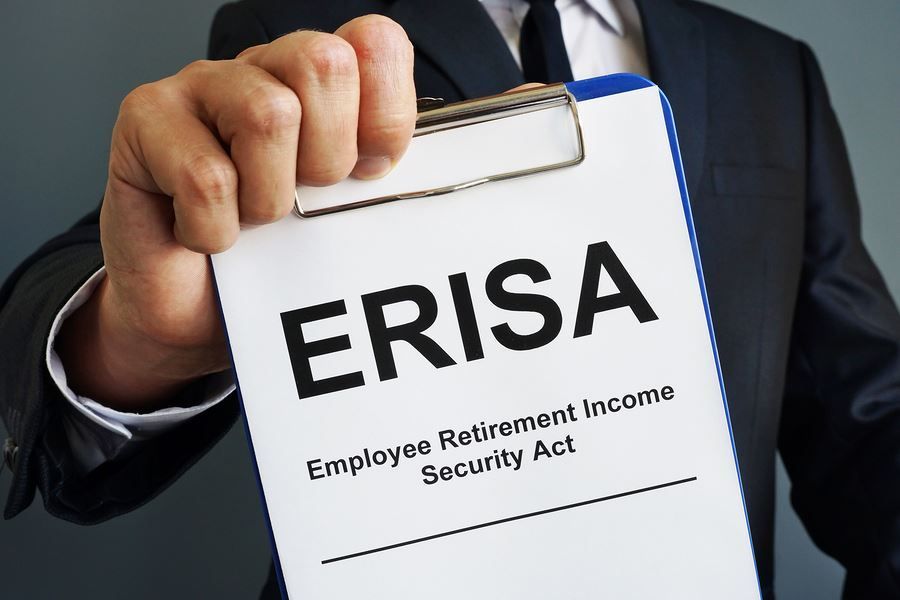
Insurance companies often present themselves as helpful and supportive, but in reality, they often profit by minimizing or denying claims. Insurance disputes can happen in multiple contexts, from property damage claims to liability coverage disagreements. These disputes often lead to financial stress, because individuals rely on these benefits during times of need such as after a medical condition, the loss of a loved one, accidents, or natural disasters. Understanding the litigation essentials and effective strategies for resolving these disputes is crucial for both policyholders and insurers. At DL Law Group, we are dedicated to helping you pursue justice against insurance companies by providing you with the right tools and guidance throughout the legal process. Here are some of our key approaches to consider: 1. Detailed Documentation Successful insurance dispute resolutions always begin with detailed documentation. Whether you're the insured or the insurer having clear organized records is going to be a vital part of litigation. These include: Policy Documents: It’s important to keep records of anything pertaining to your coverage, like your insurance policy, endorsements, and any communication regarding it. These documents will be a strong reference during litigation. Claims Documentation: Keep detailed documentation of all your interactions related to the claim in place. Ensure you note all dates, times, and names of representatives when you email, call, or write to them. Evidence of Loss: Maintain any records of losses incurred, like photos, invoices, and repair estimates. 2. Engage in Open Communication Open communication is an essential part to any professional setting, or conflict resolution, and is key to resolving disputes. When both parties engage in open and honest dialogue, it reduces the likelihood of any misunderstandings and ensures everyone is on the same page. It’s important to consider these tactics: Pre-Litigation Discussions: To save your time and legal expenses, try to resolve the issue through negotiation or mediation. If these efforts are unsuccessful, litigation may be a necessary option. Regular Updates: Policyholders should be accountable for following up on their claims and ensuring all parties are informed throughout the process. 3. Utilize Mediation and Arbitration Other alternative dispute resolutions (ADR) include mediation and arbitration, these options tend to be less expensive and quicker than litigation. Mediation: A mediator, typically a third party, helps the insurer and policyholders by facilitating a discussion between the two to reach a voluntary settlement. The mediator does not take sides in the dispute or offer any legal advice. Arbitration: Is a formal process where an arbitrator resolves the dispute between both parties, by listening to both sides, considering the evidence, and making a legally binding decision. 4. Understand the Legal Framework It’s crucial to be aware of the legal framework surrounding insurance disputes. This includes: State Laws: Make sure you familiarize yourself with any relevant state regulations, as insurance laws vary by state. This will affect your coverage, claim processes and dispute resolution strategies. Bad Faith Claims: When handling claims insurers must act in good faith, otherwise policyholders may have grounds for legal claims. 5. Consider Expert Opinions When undergoing disputes, expert opinions can be an asset. As professionals that can provide the policyholders with testimonies or reports on industry standards, damages, or other material can strengthen your position. 6. Prepare for Litigation If all else fails, litigation will be the next course of action. You’ll have to consider these steps: Choose the Right Attorney: When selecting an attorney make sure they have expertise in insurance law and a proven track record. An attorney with experience and knowledge will be a vital part in helping you navigate through the complexities of your case. Develop a Strong Case: A well-prepared case can influence your settlement negotiations and litigation outcomes: therefore, it’s essential to gather all evidence, expert opinions, and documentation. Know Your Goals: Define your goals and make sure you are clear on what you aim to achieve through litigation, whether it’s compensation, policy clarification, or something else. Resolving Insurance disputes can be challenging, but employing the right strategies and having a strong team by your side can significantly ease the process. The DL Law Group has championed policyholders for decades in the San Francisco Bay Area. As we understand the inner workings of insurance companies and how they often employ aggressive defense attorneys to minimize payouts on claims. To level the playing field, contact our experienced attorneys at DL Law. We will help you seek justice and represent you in the courtroom against some of the most formidable insurance companies.

Insurance claims can be complex and daunting, often requiring expert legal assistance. This post will discuss the crucial role legal experts play in handling various insurance claims, ensuring fair treatment and justice for policyholders. Types of Insurance Claims Legal experts assist with a variety of insurance claims, including: Disability Insurance Claims: For individuals unable to work due to illness or injury. Long-Term Care Insurance Claims: Covering extended medical and personal care services. Bad Faith Insurance Claims: Addressing unfair practices by insurers. Property Insurance Claims: Related to damage or loss of property. Life Insurance Claims: Providing financial security to beneficiaries after the policyholder's death. Common Challenges in Insurance Claims Policyholders often face several challenges when filing claims, such as: Complex Policy Language: Understanding the terms and conditions of insurance policies can be difficult. Documentation Requirements: Gathering and submitting necessary documentation is often a cumbersome process. Insurer Disputes: Insurers may dispute the validity or amount of claims. Claim Denials: Claims can be denied for various reasons, sometimes unfairly. Benefits of Legal Assistance Legal experts provide invaluable support by: Interpreting Policies: Helping policyholders understand their coverage and rights. Preparing Claims: Assisting in the collection and submission of required documentation. Negotiating with Insurers: Advocating for fair settlements on behalf of policyholders. Handling Appeals: Managing the appeals process for denied claims. Litigating Disputes: Representing policyholders in court when necessary. Choosing the Right Legal Expert When selecting a legal expert for your insurance claim, consider: Experience: Choose a lawyer with a track record in handling similar cases. Reputation: Research reviews and testimonials from previous clients. Communication: Ensure the lawyer communicates clearly and keeps you informed throughout the process. Fees: Understand the fee structure and any potential costs involved. Legal experts play a vital role in navigating the complexities of insurance claims, ensuring policyholders receive fair treatment and justice. Seeking professional legal assistance can significantly improve the chances of a successful claim and provide peace of mind during challenging times.

Chronic fatigue syndrome (CFS) can severely impact one’s ability to work, making disability insurance claims essential for those affected. This post will guide those suffering from CFS through the process of claiming disability insurance, addressing common challenges and providing tips for a successful claim. Understanding Chronic Fatigue Syndrome CFS, also known as myalgic encephalomyelitis (ME), is characterized by extreme fatigue that doesn’t improve with rest and worsens with physical or mental activity. Other symptoms include sleep disturbances, memory issues, and muscle pain. Diagnosing CFS can be challenging due to its varied symptoms and overlap with other conditions. Eligibility for Disability Insurance CFS can qualify for disability benefits if it significantly impairs your ability to work. To establish eligibility: Medical Documentation : Obtain thorough medical documentation from healthcare providers, including detailed symptom descriptions, test results, and treatment history. Functional Assessments : Provide assessments of your physical and mental limitations from medical professionals. Filing a Claim When filing a disability insurance claim for CFS, follow these steps: Notify Your Insurer : Inform your insurance company of your condition and intent to file a claim. Gather Medical Records : Collect comprehensive medical records, including diagnosis, treatment plans, and doctors’ notes. Complete Claim Forms : Fill out the required forms accurately and completely. Submit Supporting Documentation : Include additional documentation, such as personal journals of daily activities and how CFS affects your functionality. Follow Up : Stay in regular contact with your insurer and promptly respond to any requests for additional information. Common Challenges CFS claims face several hurdles, such as: Skepticism from Insurers : Insurers may doubt the severity or existence of CFS due to its subjective symptoms. Insufficient Documentation : Lack of thorough medical records can lead to claim denials. Functional Capacity Evaluations : Insurers may require evaluations to determine your ability to perform work-related activities. Legal Support A disability lawyer can assist by: Ensuring thorough documentation and presentation of your case. Navigating insurer requirements and challenges. Representing you in disputes or appeals. Navigating disability insurance claims for chronic fatigue syndrome can be complex and frustrating. Understanding the process, preparing comprehensive documentation, and seeking legal assistance can significantly improve your chances of a successful claim.

The term "gainful occupation" often appears in disability insurance policies, but what does it mean for claimants? This post will explain the concept and its implications for disability insurance claims, helping you understand how it affects your eligibility for benefits. Defining Gainful Occupation Gainful occupation generally refers to work that provides a certain level of income and is suitable based on your education, training, and experience. In the context of disability insurance, it’s used to determine whether you can perform any job, not just your previous occupation. Impact on Claims The definition of gainful occupation can significantly impact your disability insurance claim: Own Occupation Policies : Consider you disabled if you can’t perform the duties of your specific job. Any Occupation Policies : Consider you disabled only if you can’t perform any job for which you’re reasonably suited. Assessing Your Situation To determine if your work qualifies as gainful occupation, insurers consider: Income Level : Whether the job provides sufficient income, often a percentage of your pre-disability earnings. Suitability : Whether the job matches your education, training, and experience. Physical and Mental Requirements : Whether you can meet the physical and mental demands of the job. Legal Challenges Disputes over gainful occupation status are common in disability claims. Challenges may include: Disagreement Over Job Suitability : Insurers may argue that you can perform certain jobs, while you may feel they’re unsuitable. Income Discrepancies : Disputes over what constitutes sufficient income. Changing Definitions : Policies may have changing definitions of gainful occupation after a certain period. Expert Assistance A disability law expert can help navigate gainful occupation issues by: Reviewing your policy and explaining your rights. Gathering evidence to support your claim. Representing you in disputes with your insurer. Understanding gainful occupation is crucial for disability insurance claimants. Knowing how it impacts your eligibility for benefits and seeking legal assistance when needed can ensure you receive the support you’re entitled to.

Property insurance is vital for protecting your home and belongings against unforeseen events such as natural disasters, theft, or accidents. This post will cover the essentials of property insurance, from choosing the right policy to filing a claim and handling disputes. Understanding Property Insurance Property insurance provides financial reimbursement to the owner or renter of a structure and its contents in the event of damage or theft. It includes several types of coverage: · Homeowners Insurance: Covers the structure, personal belongings, and liability. · Renters Insurance: Covers personal property and liability for tenants. · Condo Insurance: Covers personal property and interior structures for condo owners. Selecting the Right Coverage Choosing the right property insurance policy involves several considerations: 1. Coverage Amount: Ensure the policy covers the cost to rebuild your home and replace your belongings. 2. Deductibles: Understand the out-of-pocket costs you’ll need to pay before insurance kicks in. 3. Policy Limits: Be aware of limits on coverage for specific items, such as jewelry or electronics. 4. Additional Coverage: Consider add-ons for natural disasters, such as flood or earthquake insurance. Common Property Insurance Claims Property insurance claims can arise from various events, including: · Fire Damage: Claims for damage caused by accidental fires. · Water Damage: Claims for water damage from burst pipes or leaks (not typically covered for flood damage). · Theft and Vandalism: Claims for stolen or vandalized property. · Natural Disasters: Claims for damage from hurricanes, earthquakes, or floods. Dealing with Claim Denials If your property insurance claim is denied, consider these steps: 5. Review the Denial Letter: Understand the reasons provided for the denial. 6. Gather Evidence: Collect additional documentation and evidence to support your claim. 7. Appeal the Decision: Follow your insurer’s appeal process to challenge the denial. 8. Seek Legal Advice: A property insurance lawyer can help you navigate the appeals process and represent you in disputes. Legal Assistance A property insurance lawyer can assist in: · Interpreting policy language and coverage. · Negotiating settlements with insurers. · Representing you in court if necessary. Property insurance is essential for protecting your home and belongings from unforeseen events. Being proactive in understanding your policy and seeking legal assistance when needed can help you avoid potential pitfalls and ensure you receive the benefits you’re entitled to.

Bad faith insurance practices can severely impact policyholders who are already facing challenging circumstances. This post will explore what constitutes bad faith insurance, how to recognize it, and what steps to take if you encounter it. Defining Bad Faith Insurance Bad faith insurance occurs when an insurer fails to uphold its duty to act fairly and in good faith towards its policyholders. Common examples include: · Unreasonable Delays: Delaying claim investigations or payments without a valid reason. · Insufficient Investigation: Failing to thoroughly investigate a claim before denying it. · Misrepresentation: Providing misleading information about policy coverage or claim status. · Unjust Denials: Denying valid claims without proper justification. Recognizing the Signs Signs of bad faith insurance practices include: · Lack of Communication: Insurers not responding to your inquiries or delaying responses. · Unreasonable Requests: Repeatedly asking for excessive or irrelevant documentation. · Unfair Settlement Offers: Offering significantly lower settlements than what your policy should cover. · Pattern of Denial: Denying claims for dubious reasons or without thorough investigation. Steps to Take If you suspect your insurer is acting in bad faith, take these steps: 1. Document Everything: Keep detailed records of all communications and transactions with your insurer. 2. Request Written Explanations: Ask for written explanations of any claim denials or delays. 3. Review Your Policy: Understand the terms and coverage of your insurance policy thoroughly. 4. File a Complaint: Submit a complaint to your state's insurance regulatory agency. 5. Seek Legal Advice: Consult a bad faith insurance claims expert to evaluate your case and discuss your legal options. Legal Recourse A legal expert can assist in: · Filing a lawsuit against the insurer for bad faith practices. · Negotiating a fair settlement. · Representing you in court if necessary. Bad faith insurance practices can cause significant financial and emotional distress. Recognizing the signs and seeking legal assistance are crucial steps in ensuring fair treatment and justice.

Long-term care insurance is designed to cover the costs associated with extended medical and personal care services, which are not typically covered by standard health insurance. This post will guide readers through the key considerations when purchasing and claiming long-term care insurance. Understanding Long-Term Care Insurance Long-term care insurance provides coverage for services such as in-home care, assisted living, and nursing home care. This type of insurance is crucial for protecting your assets and ensuring access to quality care as you age. Choosing the Right Policy Selecting the right long-term care insurance policy involves several critical factors: 6. Coverage Amount: Determine how much daily or monthly benefit you will need to cover care costs. 7. Benefit Period: Decide on the length of time benefits will be paid, which can range from a few years to a lifetime. 8. Elimination Period: Understand the waiting period before benefits begin, typically 30-90 days. 9. Inflation Protection: Consider adding an inflation protection rider to ensure your benefits keep pace with rising care costs. Common Exclusions and Limitations Policies often have exclusions and limitations, such as: Pre-existing conditions Specific types of care or facilities Conditions like dementia or Alzheimer's may have particular stipulations Filing a Claim When it's time to file a claim, follow these steps: 10. Initiate the Claim: Contact your insurance company to begin the claims process. 11. Provide Documentation: Submit proof of the need for long-term care, including medical records and care provider assessments. 12. Assessment: An insurance assessor may evaluate your condition and care needs. 13. Approval: Once approved, benefits will begin after the elimination period. Legal Support Claim denials can happen. Legal support is invaluable for: Interpreting policy terms Gathering necessary documentation Challenging denials and appealing decisions Long-term care insurance is a critical investment in your future well-being. Thorough research and legal assistance are essential for selecting the right policy and ensuring you receive the benefits you need.

Disability insurance is a critical safety net for individuals who can no longer work due to illness or injury. Without it, financial stability can quickly erode, leading to significant stress and hardship. This post will delve into the essentials of disability insurance, covering its importance, types, and the process of claiming benefits. The Importance of Disability Insurance Disability insurance provides income replacement if you are unable to work due to a qualifying medical condition. This financial support can be crucial in maintaining your standard of living and covering everyday expenses, such as mortgage payments, utility bills, and medical costs. Types of Disability Insurance There are two main types of disability insurance: short-term and long-term. · Short-term Disability Insurance: Provides benefits for a limited period, typically from a few weeks up to a year. It's designed to cover temporary disabilities that prevent you from working for a short period. · Long-term Disability Insurance: Kicks in after short-term benefits end, providing income replacement for more extended periods, potentially until retirement age. This type is crucial for serious or chronic conditions. How to File a Disability Insurance Claim Filing a disability insurance claim can be complex and time-consuming. Here’s a step-by-step guide: 1. Notify Your Insurer: Contact your insurance company as soon as you become disabled. 2. Gather Documentation: Collect medical records, employment records, and any other documents that support your claim. 3. Complete the Claim Form: Fill out the required forms from your insurer. Ensure accuracy to avoid delays. 4. Submit Your Claim: Send your completed forms and supporting documents to your insurer. 5. Follow Up: Regularly check the status of your claim and respond promptly to any requests for additional information. Common Challenges in Filing Claims · Incomplete Documentation: Missing or incomplete medical records can delay or derail your claim. · Misunderstanding Policy Terms: Not fully understanding what your policy covers can lead to denied claims. · Insurer Disputes: Insurance companies may dispute the severity of your disability or your eligibility. Legal Assistance Navigating a disability insurance claim can be daunting. A disability law expert can: · Help you understand your policy and your rights. · Assist in gathering and presenting evidence. · Represent you in disputes or appeals. Disability insurance is an essential safeguard for financial stability in the face of illness or injury. Consulting with a legal expert can ensure you receive the benefits you're entitled to, making a challenging time more manageable.

ERISA stands for the Employee Retirement Income Security Act of 1974. It is a piece of federal legislation that governs employer-provided benefit plans. It sets up minimum standards that employers must adhere to when they offer their employees benefits. These standards include: Informing employees of their benefits packages Requiring that insurance providers and administrators follow strict policies for managing employee benefits Employees may receive legal recourse through federal court


